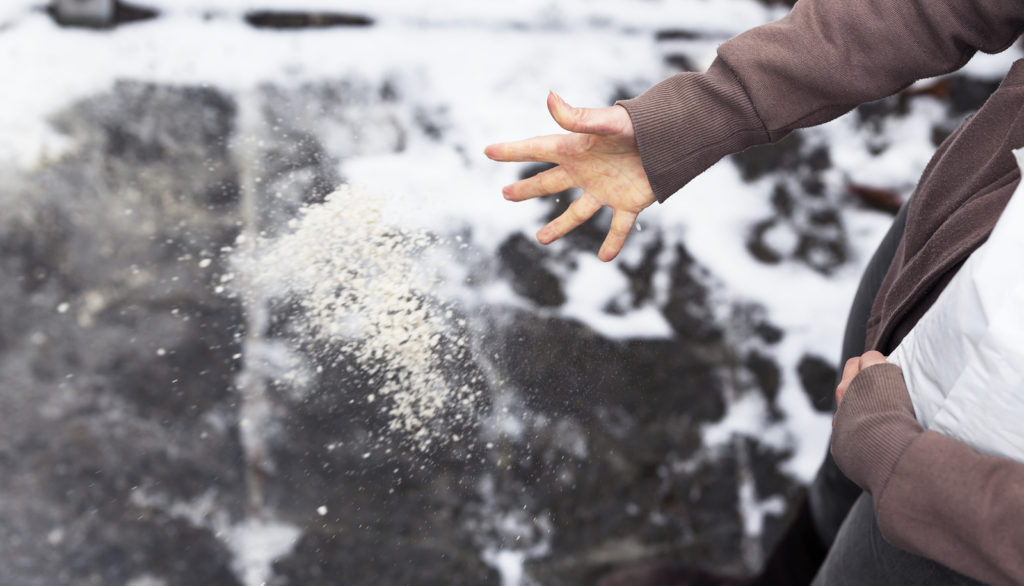There are many misconceptions about using salt and de-icers on pavement. With so many contradicting notions, it can be difficult figuring out whether or not you should salt your asphalt and concrete pavements. And with the current Indianapolis snow forecast, now is the time to clear up any confusion or concerns you’ve had about salting your paved surfaces.
Continue reading to learn what you need to know about using salt on asphalt and concrete this winter season.

Rock salt provides an impactful benefit when it comes to creating safer, more stable road and walkways. However, in order to reap the benefits of salt, it is important to know which types of pavements to use it on, and how to be environmentally conscientious while doing so. Here are the top 4 facts you need to know to ensure you protect your pavements and the surrounding ecosystem:
➠ Salt Can Harm the Environment
It is important to apply salt properly and with the utmost care and attention. Otherwise, it can negatively affect the surrounding environment via water runoff. It can also be toxic to local plants and wildlife. In fact, certain studies have identified an increase in salinity within rivers, lakes, and even drinking water, as a direct result of roadway salting practices.
➠ Salt Will Damage Concrete
Concrete is a porous pavement, which means it has pores that can collect moisture and water. This makes them more vulnerable to freeze-thaw cycles and other intruding constituents. Roadway salts are common culprits behind concrete deterioration because they are acidic and breakdown the adhesive bonds that hold concrete together. As a result, concrete freezes more quickly, thus requiring more salting. Overtime, concrete is damaged if ongoing maintenance is not implemented after every season.
➠ Salt Will Not Damage Asphalt
In contrast to concrete pavements, snow salt will not harm your asphalt surfaces. Hot-mix asphalt pavements are made from stone aggregate, sand, petroleum, and other sturdy constituents, so they will not be affected by salts, de-icers, and freeze-thaw cycles. So if you want to use salt on your asphalt, go right ahead! Just be sure to maintain a clear and controlled boundary to prevent water run-off and environmental damage.
➠ Salt Does Not Create Potholes
Although salt can deteriorate concrete, it does not create potholes. Water must enter into the ground below the pavement to create a pothole. As for salt, it weakens concrete, and can even lead to cracking, crumbling, and fissures; however, those frustrating giant craters are thanks to changing weather, vehicular traffic, and lack of proper pavement maintenance. When it comes to asphalt, salt can only cause deterioration or damage if the pavement is already damaged or compromised.
Indianapolis Pavement Repair and Maintenance

Call ACI Asphalt and Concrete at 317-549-1833 for commercial and municipal paving services in Indianapolis, Indiana. Our licensed and qualified paving contractors provide several Indianapolis asphalt and concrete paving services, including pavement repair, sealcoating, road work, commercial paving, industrial paving, winter cold patching, and more. We are the industry veterans to trust for skilled craftsmanship and competitive prices! Request a free estimate, today.
